December 18, 2018 •
Prince Edward Island Lobbying Laws Scheduled to Come into Force on April 1, 2019
The new lobbying law for the province of Prince Edward Island is scheduled to come into effect April 1, 2019, according to its Department of Justice and Public Safety. Bill No. 24, the Lobbyist Registration Act, was passed in December […]
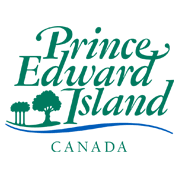 The new lobbying law for the province of Prince Edward Island is scheduled to come into effect April 1, 2019, according to its Department of Justice and Public Safety. Bill No. 24, the Lobbyist Registration Act, was passed in December of 2017 during the Third Session of the 65th General Assembly of the Prince Edward Island Legislative Assembly and has already received Royal Assent. Currently the province is setting up an Office of the Lobbyist Registrar.
The new lobbying law for the province of Prince Edward Island is scheduled to come into effect April 1, 2019, according to its Department of Justice and Public Safety. Bill No. 24, the Lobbyist Registration Act, was passed in December of 2017 during the Third Session of the 65th General Assembly of the Prince Edward Island Legislative Assembly and has already received Royal Assent. Currently the province is setting up an Office of the Lobbyist Registrar.
Upon the Act coming into force, consultant lobbyists, in-house lobbyists, and employers of in-house lobbyists will be required to register with the Registrar when communicating with a public office holder, directly or through grassroots communications, in an attempt to influence them on a variety of issues. Additionally, a consultant lobbyist will be required to register when communicating with a public-office holder to influence the awarding of any contract by or on behalf of the Crown or arrange a meeting between a public-office holder and any other person.
Registrants will be required to file returns with this Registrar every six months detailing any relevant subject matters lobbied, including legislative and regulatory proposals, the techniques of communication the lobbyist has used or expects to use to lobby, the employer or client for which the registrant is lobbying, and the identification of entities or persons paying more than $750 per fiscal year to the registrant to lobby.
Lobbying on a contingency fee basis is prohibited for consultant lobbyists and former public office holders are prohibited from lobbying for a period of six months after leaving office. Penalties for violations of the Act include fines up to $25,000. Canada’s three territories still do not have laws regulating lobbying.
December 18, 2018 •
Canadian Territory of Yukon To Have Lobbying Law
Sometime in 2019 the Canadian territory of Yukon will have its first lobbying law. Bill No. 23, the Lobbyist Registration Act, received Royal Assent on November 22, 2018, but is not yet in effect. The Act will come into force […]
 Sometime in 2019 the Canadian territory of Yukon will have its first lobbying law. Bill No. 23, the Lobbyist Registration Act, received Royal Assent on November 22, 2018, but is not yet in effect. The Act will come into force on a day or days to be fixed by the Commissioner in Executive Council, likely in late 2019.
Sometime in 2019 the Canadian territory of Yukon will have its first lobbying law. Bill No. 23, the Lobbyist Registration Act, received Royal Assent on November 22, 2018, but is not yet in effect. The Act will come into force on a day or days to be fixed by the Commissioner in Executive Council, likely in late 2019.
Upon the Act coming into force, consultant lobbyists and in-house lobbyists will be required to register. Registration will be required for individuals communicating with a public office holder, directly or through grassroots communications, in attempts to lobby. Additionally, a consultant lobbyist will be required to register when arranging a meeting between a public office holder and any other person for the purposes covered by the Act.
There are two revolving door provisions in the Act. For the six-month period after ceasing to be in office, a former public office-holder is prohibited from lobbying as a consultant lobbyist, but he or she is not prohibited from immediately lobbying as an in-house lobbyist. Additionally, a consultant lobbyist is prohibited from becoming an employee of Yukon’s public service for six months after the terminating of his or her lobbyist registration.
Penalties for violations of the Lobbyist Registration Act include fines up to $25,000 for the first violation and up to $100,000 for each subsequent violation.
December 13, 2018 •
South Carolina Calls Special Election for House District 14
After a 16-year legislative career, state Rep. Mike Pitts will step down from his House District 14 seat on January 3, 2019. The first to announce his candidacy for the seat is Stewart Jones, a small business owner and former […]
 After a 16-year legislative career, state Rep. Mike Pitts will step down from his House District 14 seat on January 3, 2019.
After a 16-year legislative career, state Rep. Mike Pitts will step down from his House District 14 seat on January 3, 2019.
The first to announce his candidacy for the seat is Stewart Jones, a small business owner and former chairman of the Lakelands Republican Liberty Caucus.
The primary election to fill Pitts’ seat will take place on February 19, 2019, and the special election is scheduled for April 23, 2019.
If a runoff is needed, it will take place on March 5, 2019.
December 13, 2018 •
Lawmakers Pass a Return to 2016 State Board of Elections Structure
The North Carolina General Assembly passed a bill to return the administration of elections, ethics, and lobbying regulations to the 2016 structure. Voters defeated a constitutional amendment in November to establish an eight-member Bipartisan Board of Elections and Ethics Enforcement, […]
 The North Carolina General Assembly passed a bill to return the administration of elections, ethics, and lobbying regulations to the 2016 structure.
The North Carolina General Assembly passed a bill to return the administration of elections, ethics, and lobbying regulations to the 2016 structure.
Voters defeated a constitutional amendment in November to establish an eight-member Bipartisan Board of Elections and Ethics Enforcement, which would have kept the current structure in place.
An additional provision in the bill requires re-elections when the result of an election is investigated. This would require refiling and participation in a primary and not merely a runoff.
Passage of the voter ID law would not impact any possible 2018 re-election.
The bill further addresses absentee-by-mail ballots which are the topic of the current 9th District board of elections investigation.
The bill now awaits Governor Roy Cooper’s approval.
December 12, 2018 •
Pennsylvania State Representative Resigns
State Representative Vanessa Lowery Brown resigned on December 12 under protest. In October, she was convicted of bribery, conflict of interest, and failure to properly file a financial disclosure report. The state constitution prevents her from continuing to serve in […]
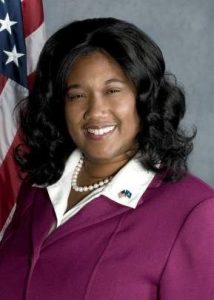 State Representative Vanessa Lowery Brown resigned on December 12 under protest.
State Representative Vanessa Lowery Brown resigned on December 12 under protest.
In October, she was convicted of bribery, conflict of interest, and failure to properly file a financial disclosure report. The state constitution prevents her from continuing to serve in the Legislature.
Lowery Brown plans to appeal her conviction.
A special election could be set as early as March to fill the western Philadelphia seat.
December 12, 2018 •
FEC to Consider Whether Mining Cryptocurrencies Is Contribution
On December 13, the Federal Election Commission (FEC) may consider whether allowing an individual volunteering to allow the processing power of his or her internet-enabled device to mine cryptocurrencies for the benefit a political committee would be considered a political […]
 On December 13, the Federal Election Commission (FEC) may consider whether allowing an individual volunteering to allow the processing power of his or her internet-enabled device to mine cryptocurrencies for the benefit a political committee would be considered a political contribution.
On December 13, the Federal Election Commission (FEC) may consider whether allowing an individual volunteering to allow the processing power of his or her internet-enabled device to mine cryptocurrencies for the benefit a political committee would be considered a political contribution.
An advisory opinion request asks the FEC if a federal political committee could allow its individual supporters to volunteer the processing power of their internet-enabled devices to pool the processing power of these devices, which results in the mining of a “block.”
Mining allows transactions between users to be authenticated and generates a new cryptocurrency unit for the miner as a reward for creating the “block” and pays the miner a transaction fee. Creating blocks requires enormous amounts of computing power and can take years to generate a valid “block” by a single miner.
The FEC may consider Draft Advisory Opinion 2018-13 (Draft A) at its open meeting December 13, or hold it over for a future date.
December 10, 2018 •
FEC Seeks Comments on Comments
The Federal Election Commission (FEC) is seeking public comments on proposals for rules establishing specific time periods for the submission of public comments on drafts of advisory opinions. These comments must be submitted on or before February 1, 2019. In […]
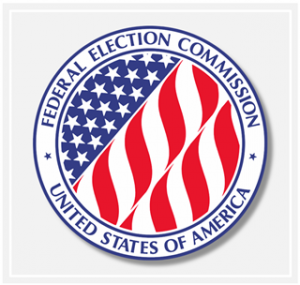 The Federal Election Commission (FEC) is seeking public comments on proposals for rules establishing specific time periods for the submission of public comments on drafts of advisory opinions. These comments must be submitted on or before February 1, 2019.
The Federal Election Commission (FEC) is seeking public comments on proposals for rules establishing specific time periods for the submission of public comments on drafts of advisory opinions. These comments must be submitted on or before February 1, 2019.
In 2016, a Petition for Rulemaking was received by the FEC requesting the Commission modify 11 CFR §112.3 and codify procedures establishing specific time periods for public comments on drafts of advisory opinions before the Commission votes on the drafts.
The petition, filed by Make Your Laws PAC, Inc., Make Your Laws Advocacy, Inc., Make Your Laws, Inc., and Dan Backer, Esq., additionally asks the Commission to amend existing regulations to require that, when the Commission makes public multiple drafts of an advisory opinion, the Commission indicate the differences between those drafts.
After the comment period is over, the FEC will consider the merits of the petition. The notice of availability for the submission of public comments was issued in the December 3 Federal Register.
December 7, 2018 •
Portland Mayor Enacts Voter Approved Campaign Finance Measure
Mayor Ted Wheeler submitted to City Council a proclamation stating the recently passed campaign finance ballot measure is enacted and in effect. The Honest Elections City of Portland Charter Amendment prohibits corporate contributions and limits contributions from individuals and committees […]
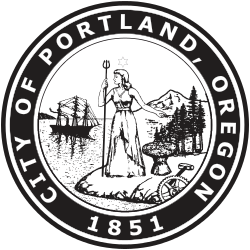 Mayor Ted Wheeler submitted to City Council a proclamation stating the recently passed campaign finance ballot measure is enacted and in effect.
Mayor Ted Wheeler submitted to City Council a proclamation stating the recently passed campaign finance ballot measure is enacted and in effect.
The Honest Elections City of Portland Charter Amendment prohibits corporate contributions and limits contributions from individuals and committees to $500 per election cycle.
The measure also caps independent expenditures and is likely to face legal challenge.
City Council is expected to submit the measure to the local circuit court for validation early next year.
In 1997, the Oregon Supreme Court struck down statewide campaign finance limits as a violation of free speech protection outlined by the Oregon Constitution.
December 7, 2018 •
Hawaii Announces New Electronic Filing System
The Hawaii Ethics Commission will launch a new electronic filing system for lobbying registrations and disclosures beginning in January 2019, allowing lobbyists and organizations to register online for the 2019-2020 legislative biennium. Lobbyists who plan to continue lobbying in 2019 […]
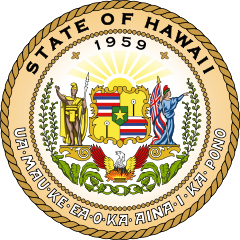 The Hawaii Ethics Commission will launch a new electronic filing system for lobbying registrations and disclosures beginning in January 2019, allowing lobbyists and organizations to register online for the 2019-2020 legislative biennium.
The Hawaii Ethics Commission will launch a new electronic filing system for lobbying registrations and disclosures beginning in January 2019, allowing lobbyists and organizations to register online for the 2019-2020 legislative biennium.
Lobbyists who plan to continue lobbying in 2019 must renew registrations by Monday, January 28, 2019. Commission staff are available to assist lobbyists who have already registered for the 2019-2020 lobbying period via a paper filing.
Lobbying expenditure reports for 2019 may be submitted electronically through the new e-filing system as early as March 2019.
December 7, 2018 •
News You Can Use Digest – December 6, 2018
National: Republicans in Wisconsin, Michigan Push to Curb Power of Newly-Elected Democrats Washington Post – Mark Berman, Emily Wax-Thibodeaux, and Dan Simmons | Published: 12/5/2018 Following losses in statewide elections, Republicans in Wisconsin and Michigan have responded with pushes to limit the power […]
National:
Republicans in Wisconsin, Michigan Push to Curb Power of Newly-Elected Democrats
Washington Post – Mark Berman, Emily Wax-Thibodeaux, and Dan Simmons | Published: 12/5/2018
Following losses in statewide elections, Republicans in Wisconsin and Michigan have responded with pushes to limit the power of Democrats who won those offices, as advocacy groups threaten to block their efforts with legal action. Wisconsin Republicans passed bills that effectively kneecap the state’s incoming Democratic governor and attorney general with measures that limit or eliminate their abilities to act on aspects of gun control, a lawsuit on the Affordable Care Act, and various other state matters. Republican lawmakers in Michigan are similarly attempting to shift authority from the Democrats recently elected as governor, attorney general, and secretary of state, the first time the party will hold all three positions in nearly three decades.
Federal:
Prosecutors Ramp Up Foreign Lobbying Probe In New York
TPM – Eric Tucker, Desmond Butler, and Chad Day (Associated Press) | Published: 12/5/2018
Spinning off from the special counsel’s Russia probe, prosecutors are ramping up their investigation into foreign lobbying by two major Washington, D.C. firms that did work for former Trump campaign chairperson Paul Manafort, according to people familiar with the matter. The investigation had been quiet for months since special counsel Robert Mueller referred it to authorities in Manhattan because it fell outside his mandate of determining whether the Trump campaign coordinated with Russia. But in a flurry of new activity, Justice Department prosecutors in the last several weeks have begun interviewing witnesses and contacting lawyers to schedule additional questioning related to the Podesta Group and Mercury Public Affairs.
Saudi-Funded Lobbyist Paid for 500 Rooms at Trump’s Hotel After 2016 Election
MSN – David fahrenthold and Jonathan O’Connell (Washington Post) | Published: 12/5/2018
Saudi lobbyists moved some business to President Trump’s hotel in Washington, D.C., last year following the 2016 election, paying for an estimated 500 nights’ stay over just three months at the Trump International Hotel. Until December 2016, the lobbyists were booking at hotels in Northern Virginia. The lobbyists, backed by the Saudi Arabian government, spent around $270,000 at the Trump hotel in total, housing dozens of U.S. military veterans brought to the district to lobby Congress against a recently-passed law allowing victims of the September 11 terrorist attacks to sue other governments. The 500 nights in Trump’s hotel came at a discounted rate, and organizers claim that is the reason they moved their business there. Some of the veterans said they were not aware they were lobbying on behalf of Saudi Arabia.
From the States and Municipalities:
Arizona – Ruling Restores Expanded Oversight by Clean Elections Commission Over Campaign Finances
Arizona Daily Star – Howard Fischer (Capitol News Services) | Published: 12/6/2018
Maricopa County Superior Court Judge David Palmer ruled that major parts of a rewrite of Arizona’s campaign finance laws violate the state constitution. The judge said parts of the law illegally strip power from the Citizens Clean Elections Commission. The power to investigate campaign finance violations and act as filing officer for candidates was handed to the secretary of state under the law. The 2016 law created large exemptions in what counts as a contribution, including allowing political parties to spend unlimited sums backing a candidate. It also allowed unlimited spending on legal fees and other types of support for candidates and political committees without being counted toward contribution limits. Palmer ruled all those provisions violate the Voter Protection Act.
California – L.A. Councilman’s Wife Was a Paid Fundraiser. Ex-Aides Say He Assigned Them to Help
Los Angeles Times – Adam Elmahrek, David Zahniser, and Emily Alpert-Reyes | Published: 11/30/2018
Los Angeles City Council member Jose Huizar personally asked companies that do business at City Hall to donate to a private school where his wife was working as a professional fundraiser and also assigned his staff to help with the effort. Huizar instructed staffers to work on a yearly fundraiser for Bishop Mora Salesian High School, and the assignment was considered part of their job duties. Huizar also sent an email to aides in 2013 identifying lobbyists, city contractors, and others whom he had contacted about making a donation. In the email, Huizar said two of his staff members were assisting in the fundraising effort. Two donors who gave to Salesian in 2015 said they were asked to do so by Huizar staffers.
District of Columbia – D.C. Council Approves Sweeping Changes to Campaign Finance, Bans ‘Pay to Play’
Washington Post – Peter Jamison | Published: 12/4/2018
The District of Columbia Council passed legislation that addresses the city’s “pay-to-play” culture. The bill would ban campaign donations from firms and their top executives if they hold or are seeking government contracts worth at least $250,000. It would also give new authority to the city’s Office of Campaign Finance and require increased disclosures from independent expenditure committees. Amendments to the bill allow contractors to contribute to their own campaigns if they run for office and extend the deadline for closing campaign committees to 12 months after an election. Mayor Muriel Bowser could sign or veto the legislation or let it become law without signing it. She has not taken a position on restricting campaign donations from government contractors.
Hawaii – City Ethics Commission Is Investigating Far Fewer Cases Than 2 Years Ago
Honolulu Civil Beat – Natanya Friedheim | Published: 12/6/2018
The Honolulu Ethics Commission has kept a low profile since the tumultuous departure of its former director, Chuck Totto, more than two years ago. Totto’s replacement, Jan Yamane, has shifted the commission’s focus from investigating misconduct to training city employees and encouraging good behavior. “It doesn’t mean enforcement isn’t going to happen, but we would like to be more proactive,” Yamane said. In the years leading up to Totto’s departure, the commission saw a dwindling number of requests for advice, from an average of 342 per year from fiscal years 2012 to 2016 to just 182 requests in the 12 months following Totto’s exit. For some, the commission is now too quiet.
Illinois – Chicago Architects Don’t Just Draw – They Shower Aldermen with Campaign Cash
Chicago Tribune – Blair Kamin and Todd Lighty | Published: 12/6/2018
Chicago architects have long been viewed as more high-minded than developers, who are seen as plying the city’s aldermen with campaign money to get their projects off the ground. But that image of political purity bears little relation to reality. A virtual who’s who of Chicago architects has given tens of thousands of dollars to city council members who hold near-total power to determine whether their projects get built. Architects even have hosted fundraisers for aldermen. In some cases, donations are made while a project’s future hangs in the balance. In others, aldermen reported receiving the contributions not long after the proposals were approved. Watchdogs worry the contributions give architects an advantage over ordinary residents who oppose projects but may not have their alderman’s attention.
Massachusetts – Massachusetts Campaign Finance Law on Union Donations Appealed to U.S. Supreme Court
MassLive.com – Shira Schoenberg | Published: 12/5/2018
The Massachusetts Fiscal Alliance, after losing a challenge to the state’s ban on corporate political donations in the Supreme Judicial Court, is seeking to challenge the law before the U.S. Supreme Court. Massachusetts law prohibits corporations from contributing directly to candidates or establishing PACs but allows them to make unlimited independent expenditures, with certain disclosure requirements. The plaintiffs in the state case argued the ban violates their First Amendment rights and unfairly applies to corporations but not entities like unions and nonprofits. The Supreme Judicial Court ruled the ban on corporate donations does not violate free speech rights and can help prevent actual and perceived corruption.
Minnesota – You Know You Want to Read This Sexy Story about Legislative Process Reform
Minnesota Post – Peter Callaghan | Published: 11/29/2018
There might have been no better illustration of how long the lack of transparency at the Minnesota Legislature has been a problem than the testimony provided by a longtime lobbyist and former legislative staffer at a recent hearing on legislative process reform. Phil Griffin dug up and offered testimony on the shortcomings of the legislative process he had delivered before – in 2008. The concerns were much the same back then, Griffin said, and they remain today: The Legislature is hard to follow, even for those who get paid to do so. Too much work is done out of public view, too much is left for the closing days, and too much business is left to be addressed in massive omnibus bills that include dozens and sometimes hundreds of bills. Others echoed those complaints.
Missouri – Missouri Lawmakers Resign Ahead of New Lobbyist Limits
St. Louis Post-Dispatch – David Lieb (Associated Press) | Published: 12/4/2018
Three Missouri lawmakers have resigned just ahead of the date a new constitutional amendment takes effect requiring legislators to wait two years before they can become lobbyists. State Sen. Jake Hummel confirmed he resigned in order to preserve his right to register as a lobbyist sooner rather than later. Current law requires legislators to wait six months after the end of their elected term before they can start lobbying. The new amendment requires them to wait two years after the end of the session in which they last served, but it applies only to those serving on or after the measure’s effective date.
North Carolina – North Carolina Election-Fraud Investigation Centers on Operative with Criminal History Who Worked for GOP Congressional Candidate
Chicago Tribune – Amy Gardner and Kirk Ross (Washington Post) | Published: 12/3/2018
Political operative Leslie McCrae Dowless is at the center of a fraud investigation that has delayed the certification of Republican Mark Harris’s narrow victory in the Ninth Congressional District race in North Carolina and could prompt officials to call for a new election. The possibility that November’s vote will be tossed out has prompted an outbreak of partisan accusations. The case is politically fraught for the GOP, who have pushed for voter-identification laws and other restrictions while warning without evidence about the threat of rampant voter fraud. Now, amid Democratic calls for investigations of a different kind of election fraud, one that allegedly benefited the GOP, Republicans have stayed largely silent about the allegations, instead accusing the state elections board of trying to steal the race.
Pennsylvania – Bob Brady Aide Smukler Found Guilty on 9 of 11 Counts in Campaign Finance Case
Philadelphia Inquirer – Jeremy Roebuck and Andrew Seidman | Published: 12/3/2018
A federal jury found U.S. Rep. Bob Brady’s top political strategist, Ken Smuckler, guilty of nine of 11 counts of repeatedly flouting campaign finance laws. Smukler was convicted of coordinating multiple unlawful contributions and falsifying finance reports for candidates in back-to-back congressional races. One of those campaigns, Brady’s 2012 primary bid for re-election, ended with the abrupt withdrawal of his opponent after he was promised a $90,000 payoff, which jurors concluded Smukler helped to pay. The Justice Department now has won convictions and guilty pleas against four key players in the 2012 campaign – except, notably, Brady himself.
Texas – Some Republicans Want to Oust a Muslim Doctor from His GOP Leadership Role – Because He’s Muslim
San Jose Mercury News – Meagan Flynn (Washington Post) | Published: 12/5/2018
The first time Shahid Shafi ran for a seat on the city council in Southlake in 2011, advisers assured him a Muslim in post-September 11 America who spoke with an accent and emigrated from Pakistan would never win an election in Texas. He won the Southlake City Council seat on his second try, in 2014, has since served as a delegate to multiple Texas GOP conventions and, in July, was appointed vice chairperson of the Tarrant County Republican Party. But that is when his religion somehow became a problem again, in the eyes of some Republican colleagues.
West Virginia – He Is West Virginia’s Speaker of the House – and a Lawyer for Natural Gas Companies
ProPublica – Ken Ward Jr. and Kate Mishkin (Charleston Gazette-Mail) | Published: 12/4/2018
West Virginia Del. Roger Hanshaw is expected to be re-elected as House speaker when the legislative session convenes in January. In the position, Hanshaw wields significant control over which bills are called up for votes and which are sent to committees to effectively die. When he is not at the Capitol, Hanshaw makes his living as an attorney, and his clients have included natural gas companies and gas industry lobby groups. Under the state’s ethics laws, those overlapping interests are not enough to keep him from voting on matters affecting the industry. Hanshaw illustrates both the industry’s growing ties to lawmakers and how West Virginia ethics laws allow lawmakers to advocate for their own interests or those of their clients, and sometimes leave state residents in the dark about such potential conflicts.
December 6, 2018 •
Arizona Judge Rules Campaign Finance Laws Unconstitutional
In a ruling this week, the Maricopa County Superior Court restored expanded oversight to the Citizens Clean Election Commission and deemed parts of the 2016 campaign finance law unconstitutional. The court found that power to investigate campaign finance violations and […]
 In a ruling this week, the Maricopa County Superior Court restored expanded oversight to the Citizens Clean Election Commission and deemed parts of the 2016 campaign finance law unconstitutional.
In a ruling this week, the Maricopa County Superior Court restored expanded oversight to the Citizens Clean Election Commission and deemed parts of the 2016 campaign finance law unconstitutional.
The court found that power to investigate campaign finance violations and act as the filing officer was illegally stripped from the Commission created by voters in 1998.
Additionally, the 2016 law created provisions allowing unlimited spending on legal fees, accounting and other types of support for candidates and political committees without being counted toward contribution limits.
Judge David J. Palmer ruled the above provisions violate the Voter Protection Act, a voter-approved constitutional provision banning lawmakers from significantly altering voter-enacted laws.
An appeal is expected from the defendants who include the Arizona Secretary of State. It is unclear how campaign finance filing and enforcement will be immediately affected.
December 5, 2018 •
D.C. Campaign Finance Bill Passes Second Vote
The D.C. Council unanimously approved a bill in a second full council vote that aims to restrict political contributions by government contractors doing business with the district. The bill also addresses improper coordination between campaigns, political action committees and independent […]
 The D.C. Council unanimously approved a bill in a second full council vote that aims to restrict political contributions by government contractors doing business with the district.
The D.C. Council unanimously approved a bill in a second full council vote that aims to restrict political contributions by government contractors doing business with the district.
The bill also addresses improper coordination between campaigns, political action committees and independent expenditure committees.
The pay-to-play component of the bill would ban campaign contributions by businesses seeking contracts of $250,000 or more.
Provided the mayor approves the legislation, the act of the council travels to Congress for a 30-day review. If approved and funded, the bill would take effect on October 1, 2019.
Pay-to-play provisions would take effect after the November 2020 general election.
December 4, 2018 •
GA Special Election for House District 5
A special election was announced for January 8, 2019, to fill the seat for House District 5. The seat is vacant after the death of Rep. John Meadows due to stomach cancer. The winner of the election will serve the […]
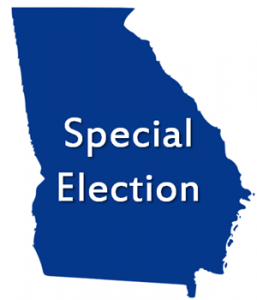 A special election was announced for January 8, 2019, to fill the seat for House District 5.
A special election was announced for January 8, 2019, to fill the seat for House District 5.
The seat is vacant after the death of Rep. John Meadows due to stomach cancer.
The winner of the election will serve the full two-year term of Rep. Meadows.
If necessary, a runoff election is scheduled for February 5.
December 3, 2018 •
Colorado Announces Campaign Finance Amendments
Colorado Secretary of State Wayne Williams announced changes to the state’s campaign and political finance rules. The amendments concern the reporting, use, and transfer of a candidate committee’s unexpended funds. The rule changes are temporarily effective December 3 and will […]
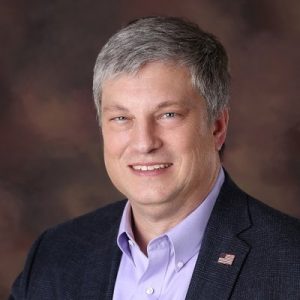 Colorado Secretary of State Wayne Williams announced changes to the state’s campaign and political finance rules.
Colorado Secretary of State Wayne Williams announced changes to the state’s campaign and political finance rules.
The amendments concern the reporting, use, and transfer of a candidate committee’s unexpended funds.
The rule changes are temporarily effective December 3 and will become permanently effective on December 23.
State and Federal Communications, Inc. provides research and consulting services for government relations professionals on lobbying laws, procurement lobbying laws, political contribution laws in the United States and Canada. Learn more by visiting stateandfed.com.


